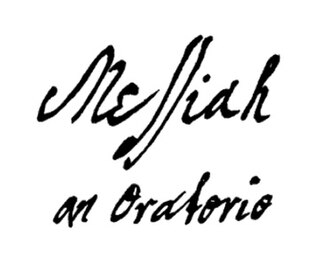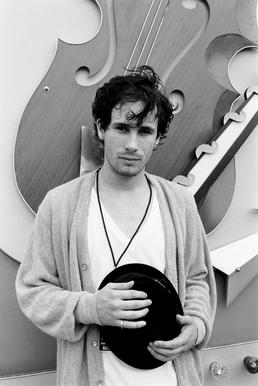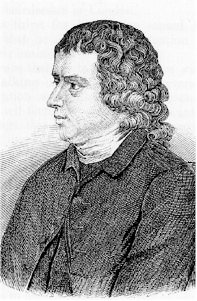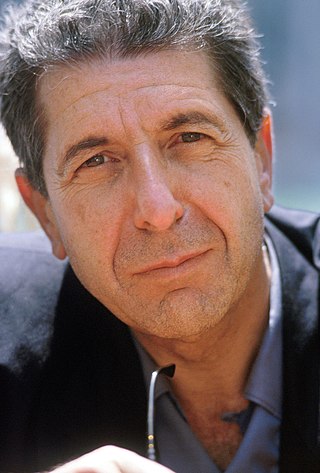
Messiah is an English-language oratorio composed in 1741 by George Frideric Handel. The text was compiled from the King James Bible and the Coverdale Psalter by Charles Jennens. It was first performed in Dublin on 13 April 1742 and received its London premiere a year later. After an initially modest public reception, the oratorio gained in popularity, eventually becoming one of the best-known and most frequently performed choral works in Western music.

Jeffrey Scott Buckley was an American musician. After a decade as a session guitarist in Los Angeles, Buckley amassed a moderate following in the early 1990s by performing cover songs at venues in East Village, Manhattan, such as Sin-é, while gradually focusing more on his own material. After rebuffing interest from record labels and Herb Cohen—the manager of his father, singer Tim Buckley—he signed with Columbia, recruited a band, and recorded what would be his only studio album, Grace, in 1994.

The "Battle Hymn of the Republic", also known as the "Mine Eyes Have Seen the Glory" or the "Glory, Glory Hallelujah" outside of the United States, is an American patriotic song that was written by the abolitionist writer Julia Ward Howe during the American Civil War.

24 Hour Party People is a 2002 British biographical comedy drama film about Manchester's popular music community from 1976 to 1992, and specifically about Factory Records. It was written by Frank Cottrell Boyce and directed by Michael Winterbottom. The film was entered into the 2002 Cannes Film Festival to positive reviews.

Hallelujah is an interjection from the Hebrew language, used as an expression of gratitude to God. The term is used 24 times in the Tanakh, twice in deuterocanonical books, and four times in the Christian Book of Revelation.

Squirrel and G-Man Twenty Four Hour Party People Plastic Face Carnt Smile is the debut studio album by the English rock band Happy Mondays, which was released in mid-April 1987 by Factory Records. After finalising their line-up, the band began playing local venues in Manchester, toured with New Order, and released an EP and a single in 1985. Happy Mondays' debut album was recorded at Fire House in London in December 1986 with producer John Cale. Halfway through the two weeks of sessions, they scrapped all their recordings and began again. Cale and engineer Dave Young did not understand the band members' vision of the album, and found them difficult to work with. Deemed a punk-funk and post-punk album, most of its songs were lyrically akin to stories on The Twilight Zone.

Pills 'n' Thrills and Bellyaches is the third studio album by the English rock band Happy Mondays, released on 5 November 1990 by Factory Records. Disc jockey (DJ) Paul Oakenfold and collaborator Steve Osborne were previously enlisted by the band for remixes. The success of these led to the pair producing "Step On", a cover of the John Kongos song, for Happy Mondays. The band went on a tour of the United States, and by the end of which, had started recording their next album with Oakenfold and Osborne at Capitol Studios in Los Angeles, California. They returned to the United Kingdom, where further recording took place at Eden Studios in London until September 1990. Described as a Madchester album, Pills 'n' Thrills and Bellyaches saw substantial input from Oakenfold and Osborne, with the former making loops while the latter handled song arrangements.
Zadok the Priest is a British anthem that was composed by George Frideric Handel for the coronation of George II in 1727. Alongside The King Shall Rejoice, My Heart is Inditing, and Let Thy Hand Be Strengthened, Zadok the Priest is one of Handel's coronation anthems. One of Handel's best-known works, Zadok the Priest has been sung prior to the anointing of the sovereign at the coronation of every British monarch since its composition and has become recognised as a British patriotic anthem.

Allison Louise Crowe is a Canadian singer, songwriter, guitarist, and pianist born in Nanaimo, British Columbia, whose home is Corner Brook, Newfoundland and Labrador.

"Christ the Lord Is Risen Today" is a Christian hymn associated with Easter. Most of the stanzas were written by Charles Wesley, and the hymn appeared under the title "Hymn for Easter Day" in Hymns and Sacred Poems by Charles and John Wesley in 1739. The hymn eventually became well known for the "Alleluia" sung as a melisma after each line, which was added by an unknown author, probably to fit the commonly used hymn tune, "Easter Hymn". It remains a traditional processional hymn on Easter Sunday.
Word painting, also known as tone painting or text painting, is the musical technique of composing music that reflects the literal meaning of a song's lyrics or story elements in programmatic music.

"Hallelujah" is a song written by Canadian singer Leonard Cohen, originally released on his album Various Positions (1984). Achieving little initial success, the song found greater popular acclaim through a new version recorded by John Cale in 1991. Cale's version inspired a 1994 recording by Jeff Buckley that in 2004 was ranked number 259 on Rolling Stone's "the 500 Greatest Songs of All Time".

Randall Thompson was an American composer, particularly noted for his choral works.

The Handel and Haydn Society is an American chorus and period instrument orchestra based in Boston, Massachusetts. Known colloquially as 'H+H', the organization has been in continual performance since its founding in 1815, the longest serving such performing arts organization in the United States.

"Come Thou Fount of Every Blessing" is a Christian hymn written by the pastor and hymnodist Robert Robinson, who penned the words in the year 1758 at the age of 22.

Leonard Cohen was a Canadian singer-songwriter and poet who was active in music from 1967 until his death in 2016. Cohen released 14 studio albums and eight live albums during the course of a recording career lasting almost 50 years, throughout which he remained an active poet. His entire catalogue is available on Columbia Records. His 1967 debut Songs of Leonard Cohen earned an RIAA gold record; he followed up with three more highly acclaimed albums: Songs from a Room (1969), Songs of Love and Hate (1971) and New Skin for the Old Ceremony (1974), before allowing Phil Spector to produce Death of a Ladies' Man for Warner Bros. Records in 1977. Cohen returned to Columbia in 1979 for Recent Songs, but the label declined to release his next album, Various Positions (1984) in the US, leaving it to American shops to import it from CBS Canada. In 1988, Columbia got behind Cohen again and gave full support to I'm Your Man, which brought his career to new heights, and Cohen followed it with 1992's The Future.

Sounds of Christmas is the second holiday-themed album by vocalist Johnny Mathis and the first of his 11 studio projects for Mercury Records. His first yuletide effort, 1958's Merry Christmas, relied heavily on popular holiday carols and standards, but this 1963 release also included two new songs as well as covers of some lesser-known recordings by Andy Williams and Bing Crosby.

Leonard Norman Cohen was a Canadian singer-songwriter, poet, and novelist. Themes commonly explored throughout his work include faith and mortality, isolation and depression, betrayal and redemption, social and political conflict, and sexual and romantic love, desire, regret, and loss. He was inducted into the Canadian Music Hall of Fame, the Canadian Songwriters Hall of Fame, and the Rock and Roll Hall of Fame. He was invested as a Companion of the Order of Canada, the nation's highest civilian honour. In 2011, he received one of the Prince of Asturias Awards for literature and the ninth Glenn Gould Prize.

Messiah, the English-language oratorio composed by George Frideric Handel in 1741, is structured in three parts. This listing covers Part II in a table and comments on individual movements, reflecting the relation of the musical setting to the text. Part I begins with the prophecy of the Messiah and his birth, shows the annunciation to the shepherds and reflects the Messiah's deeds on earth. Part II covers the Passion in nine movements including the oratorio's longest movement, an air for alto He was despised, then mentions death, resurrection, ascension, and reflects the spreading of the Gospel and its rejection. The part is concluded by a scene called "God's Triumph" that culminates in the Hallelujah chorus. Part III of the oratorio concentrates on Paul's teaching of the resurrection of the dead and Christ's glorification in heaven.

Sing Unto God, is an anthem composed by George Frideric Handel. It was performed for the royal wedding on 27 April 1736 at the Chapel Royal in St James's Palace, London with Francesca Cuzzoni-Sandoni, Carlo Broschi "Farinelli", and Francesco Bernardi "Senesino". The text was adapted from verses of Psalms 68, 106 and 128.
















